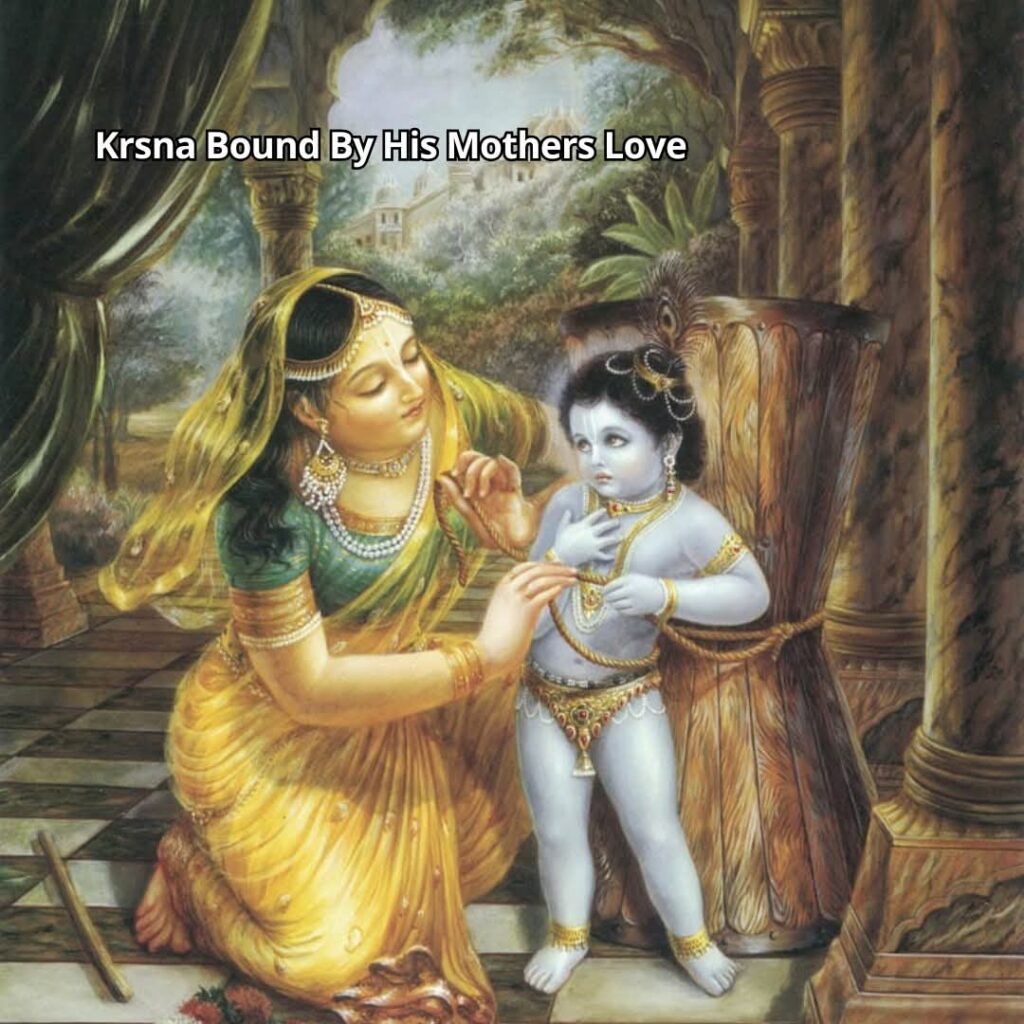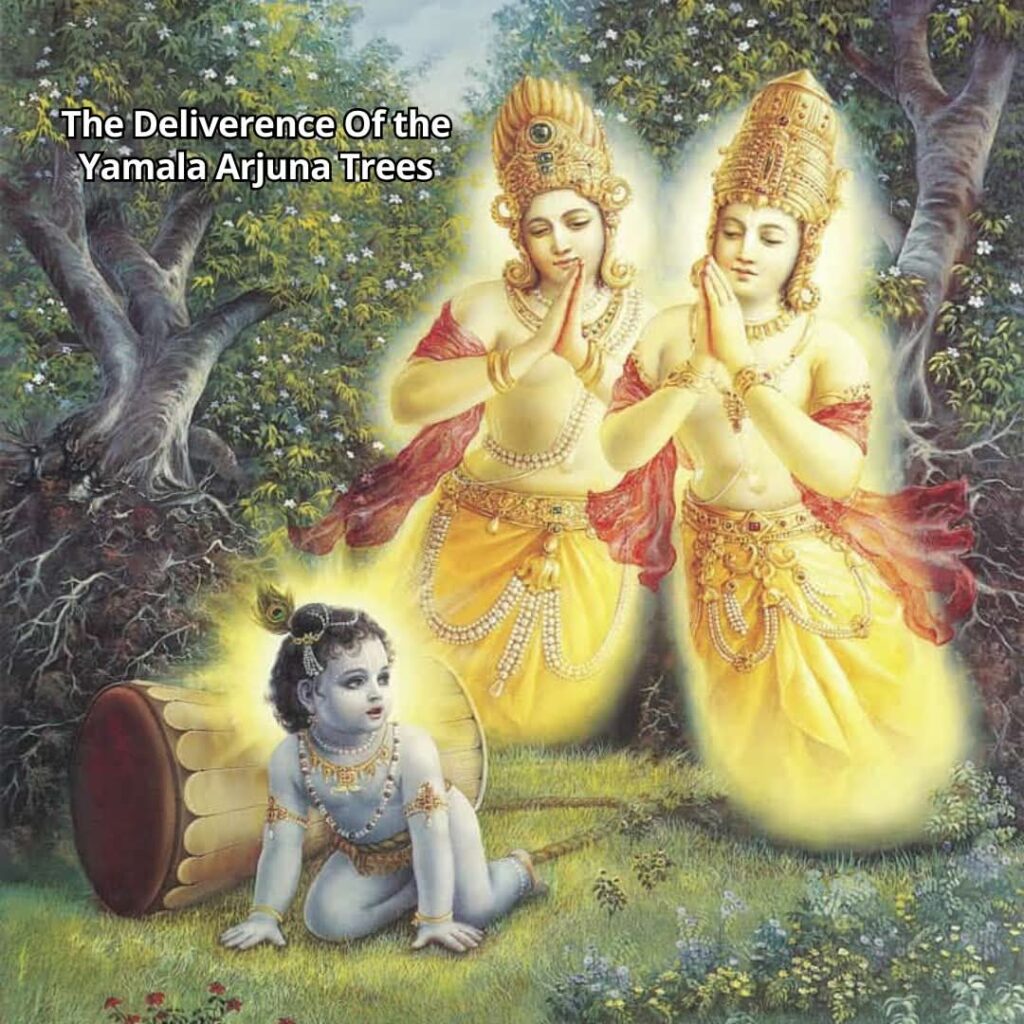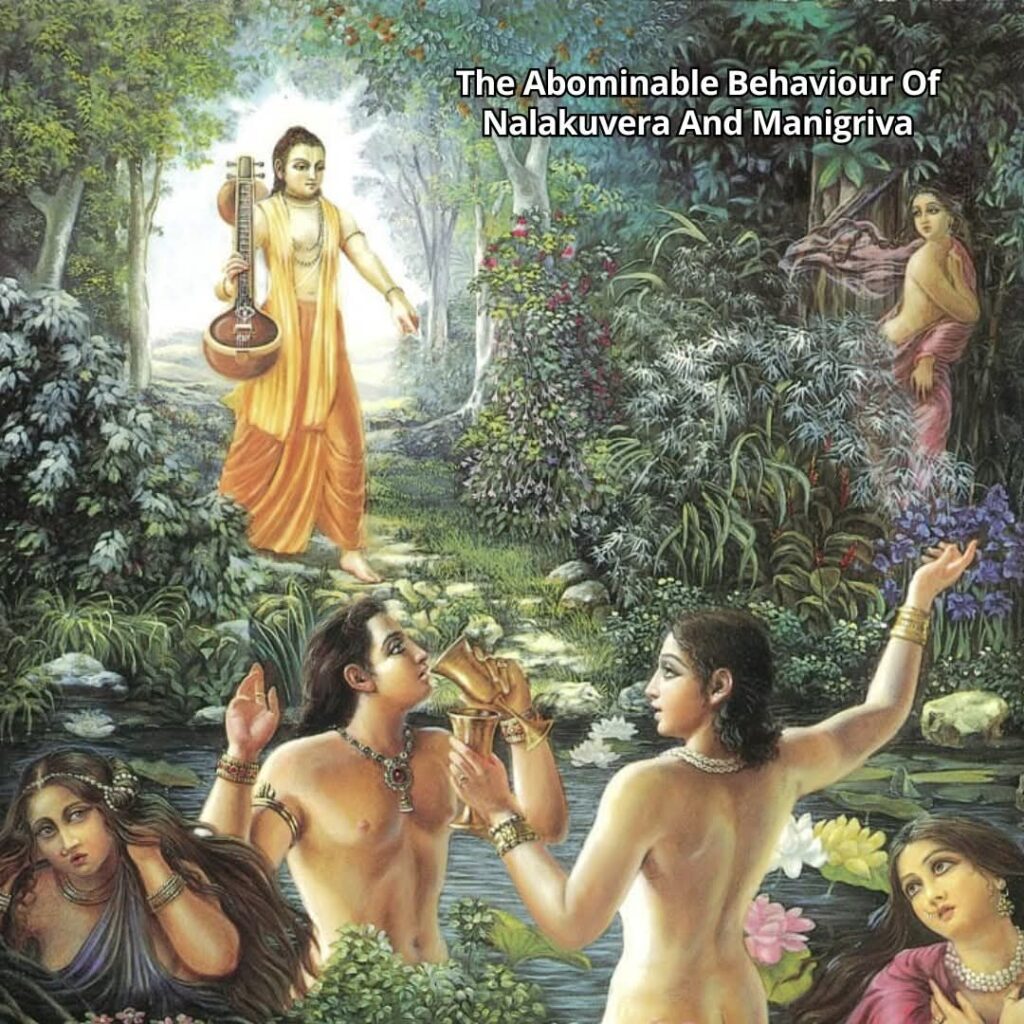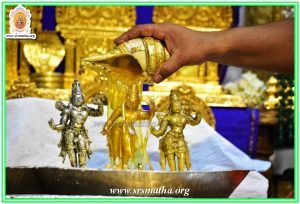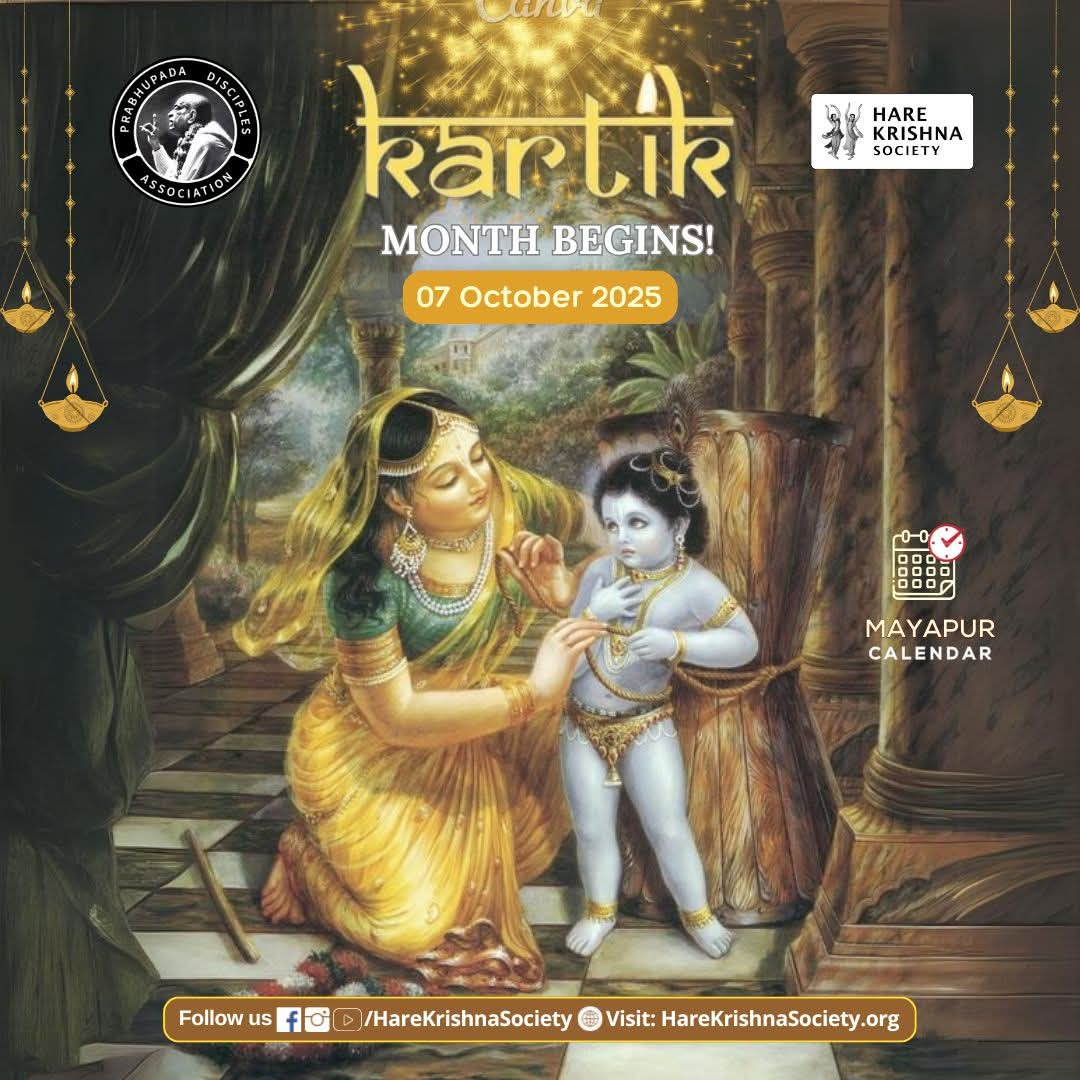
Tuesday, 07 October 2025 [Mayapura, West Bengal, India]
The Fourth Month of Caturmasya begins – fasting from urad dal
(07th October – 04th November)
“My dear Kṛṣṇa, Yaśodā took up a rope to bind You when You committed an offense, and Your perturbed eyes overflooded with tears, which washed the mascara from Your eyes. And You were afraid, though fear personified is afraid of You. This sight is bewildering to me.”
(Śrīmad-Bhāgavatam 1.8.31 | 1972 Edition)
“Kṛṣṇa’s another name is Dāmodara. The Dāmodara temple, Rādhā-Dāmodara temple, is there in Vṛndāvana, and I was staying there. Still I have my two rooms. So this Dāmodara description… The Dāmodara month is coming, and it will begin on the 18th of this October. So from that day, we’ll observe Dāmodara-vrata for one month, from 18th to 17th November. The duty will be that in the evening you’ll offer candle, a small candle, all of you, just before the Deity; not within the room, outside the room; and chant the Dāmodarāṣṭaka, namāmīśvaram. That is already printed in our song book. So this will be Dāmodara-vrata.”
(Excerpt from Srila Prabhupada Lecture, Mayapur, October 11, 1974)
“One of the most important of these ceremonial functions is called Ūrja-vrata. Ūrja-vrata is observed in the month of Kārttika (October-November); especially in Vṛndāvana, there is a specific program for temple worship of the Lord in His Dāmodara form. Dāmodara refers to Kṛṣṇa’s being bound with rope by His mother, Yaśodā. It is said that just as Lord Dāmodara is very dear to His devotees so the month known as Dāmodara or Kārttika is also very dear to them.
The execution of devotional service during Ūrja-vrata in the month of Kārttika is especially recommended to be performed at Mathurā. This system is still followed by many devotees. They go to Mathurā or Vṛndāvana and stay there during the month of Kārttika specifically to perform devotional services during this period.
In the Padma Purāṇa it is said: “The Lord may offer liberation or material happiness to a devotee, but after some devotional service has been executed, particularly in Mathurā during the month of Kārttika, the devotees want only to attain pure devotional service unto the Lord.” The purport is that the Lord does not award devotional service to ordinary persons who are not serious about it. But even such unserious persons who execute devotional service according to the regulative principles during the month of Kārttika, and within the jurisdiction of Mathurā in India, are very easily awarded the Lord’s personal service.”
(Excerpt from the Nectar of Devotion, Chapter 12 | 1970 Edition)
“Similarly, there is a statement in Padma Purāṇa describing the ritualistic function during the month of Kārttika (October-November). During this month, in Vṛndāvana it is the regulative principle to pray daily to Lord Kṛṣṇa in His Dāmodara form. The Dāmodara form refers to Kṛṣṇa in His childhood when He was tied up with rope by His mother, Yaśodā. Dāma means ropes, and udara means the abdomen. So Mother Yaśodā, being very disturbed by naughty Kṛṣṇa, bound Him round the abdomen with a rope, and thus Kṛṣṇa is named Dāmodara.
During the month of Kārttika, Dāmodara is prayed to as follows: “My dear Lord, You are the Lord of all, the giver of all benedictions.” There are many demigods like Lord Brahmā and Lord Śiva who sometimes offer benedictions to their respective devotees. For example, Rāvaṇa was blest with many benedictions by Lord Śiva, and Hiraṇyakaśipu was blest by Lord Brahmā. But even Lord Śiva and Lord Brahmā depend upon the benedictions of Lord Kṛṣṇa, and therefore Kṛṣṇa is addressed as the Lord of all benefactors. As such, Lord Kṛṣṇa can offer His devotees anything they want, but still, the devotee’s prayer continues, “I do not ask You for liberation or any material facility up to the point of liberation. What I want as Your favor is that I may always think of Your form as I see You now as Dāmodara. You are so beautiful and attractive that my mind does not want anything else besides this wonderful form.” In this same prayer, there is another passage in which it is said, “My dear Lord Dāmodara, once when You were playing as a naughty boy in the house of Nanda Mahārāj, You broke the box containing yogurt, and because of that Mother Yaśodā considered You an offender and tied You with rope to the household grinding mortar. At that time You delivered two sons of Kubera, Nalakūvara and Maṇigrīva, who were staying there as two arjuna trees in the yard of Nanda Mahārāj. My only request is that by Your merciful pastimes You may similarly deliver me.
The story behind this verse is that the two sons of Kubera (the treasurer of the demigods) were puffed up on account of the opulence of their father, and so once on a heavenly planet they were enjoying themselves in a lake with some naked damsels of heaven. At that time the great saint Nārada Muni was passing on the road and was sorry to see the behavior of the sons of Kubera. Seeing Nārada passing by, the damsels of heaven covered their bodies with cloth, but the two sons, being drunkards, did not have this decency. Nārada became angry with their behavior and cursed them thusly: “You have no sense, so it is better if you become trees instead of the sons of Kuvera.” Upon hearing this, the boys came to their senses and begged Nārada to be pardoned for their offenses. Nārada then said, “Yes, you shall become trees, arjuna trees, and you will stand at the courtyard of Nanda Mahārāj. But Kṛṣṇa Himself will appear in time as the foster son of Nanda, and He will deliver you.”
In other words, the curse of Nārada was a benediction to the sons of Kubera because indirectly it was foretold that they would be able to receive the favor of Lord Kṛṣṇa. After that, Kubera’s two sons stood as two big arjuna trees in the courtyard of Nanda Mahārāj until Lord Dāmodara, in order to fulfill the desire of Nārada, dragged the milling pestle to which He was tied and struck the two trees, violently causing them to fall down. From out of these fallen trees came Nalakūvara and Maṇigrīva, who had by then become great devotees of the Lord.”
(Excerpt from the Nectar of Devotion, Chapter 4 | 1970 Edition)
